What are Traffic Barriers
Traffic barriers are essential components of road safety, serving as protective and preventive structures designed to safeguard lives and property. They are deployed in various transportation settings, from highways and bridges to parking lots and construction zones, to manage vehicles and pedestrian traffic. Traffic barriers are engineered to control the impact of errant vehicles, delineating road boundaries, and redirecting traffic flow in a manner that minimizes risk during accidents.
These barriers come in diverse forms, each tailored to specific requirements and environments. They function by absorbing the kinetic energy of collisions, reducing vehicular speed, or creating physical boundaries that prevent access or redirect traffic. For instance, some barriers are designed to crumple upon impact, thereby dissipating energy and reducing the force transferred to the vehicle and its occupants. Others serve as robust partitions to prevent vehicles from entering restricted or hazardous areas.
The design principles of traffic barriers revolve around durability, visibility, and energy absorption. They must be strong enough to withstand impacts and environmental conditions while being conspicuous enough for drivers to recognize and react appropriately. Moreover, they often incorporate features such as reflective surfaces or lights for enhanced visibility during low-light conditions.
These safety devices are indispensable for entities responsible for public safety, including government transportation agencies, construction firms, event organizers, and facility managers. By integrating traffic barriers into their infrastructure, these organizations can significantly mitigate the consequences of vehicular mishaps and ensure smoother, safer traffic flow.
Types of Traffic Barriers
Traffic barriers come in a variety of types to suit different safety needs and applications:
Concrete Barriers: These sturdy structures are often used on highways to prevent vehicle crossover in case of an accident. Their solid construction is effective in stopping vehicles but may cause significant damage upon impact.
Steel Guardrails: Commonly seen on roadsides, steel guardrails act as a flexible barrier that absorbs impact energy and redirects errant vehicles back onto the roadway. They are frequently utilized on curves and elevated roadways.
Water-Filled Barriers: For temporary setups such as construction zones or events, water-filled barriers provide a portable solution. When filled with water, they offer substantial weight that can stop or redirect vehicles effectively.
Bollards: Bollards are vertical posts installed at regular intervals to protect pedestrians from vehicles or restrict vehicle access to certain areas like sidewalks or building entrances.
Cable Barriers: Installed along medians of highways, cable barriers consist of steel wire ropes mounted on posts. They are designed to catch and decelerate errant vehicles while preventing them from crossing into oncoming traffic lanes.
How to choose Traffic Barriers
Selecting the appropriate traffic barriers is crucial for ensuring maximum safety and functionality. When choosing these elements for your business needs on Alibaba.com, consider their intended application. For instance, concrete barriers might be more suitable for permanent installations on highways due to their high durability and resistance against heavy impacts. On the other hand, water-filled barriers could be the optimal choice for temporary setups where reusability and ease of transport are important factors.
The material composition is another vital consideration. Options range from heavy-duty steel for guardrails to plastic or rubber for more flexible delineation devices. The expected impact level should guide your material choice—steel is better suited for high-speed areas whereas lighter materials may suffice for low-impact zones like parking lots or pedestrian areas.
Visibility features such as reflective surfaces are imperative for nighttime or low-visibility conditions. Additionally, consider whether you require barriers with anti-corrosion properties or waterproofing for longevity in outdoor environments.
Finally, customization can be a deciding factor—many suppliers on Alibaba.com offer OEM (Original Equipment Manufacturer) services allowing you to tailor barrier specifications to your precise requirements.
Best Traffic Barriers on Alibaba.com
Alibaba.com stands out as an international wholesale marketplace connecting businesses with a vast selection of traffic barrier solutions from global suppliers. This platform is ideal for businesses looking to procure high-quality traffic management products due to its extensive range of offerings that cater to various requirements—from roadways and bridge safety installations to parking lot management systems.
The platform's user-friendly interface allows buyers to easily navigate through a multitude of options while offering features like 3D sample models and customized support services such as OEM and ODM that enable businesses to acquire products tailored specifically to their needs. Moreover, Alibaba.com's commitment to facilitating secure transactions is evident through services like Trade Assurance which ensures payment protection until delivery completion.
By choosing Alibaba.com for your traffic barrier needs, you benefit from a comprehensive marketplace that not only supplies diverse product options but also emphasizes buyer security and convenience. With over two decades of experience in enabling global trade solutions, Alibaba.com has established itself as a reliable partner for businesses aiming to enhance road safety measures effectively.
Common FAQs for Traffic Barriers
What are the main functions of traffic barriers?
Traffic barriers are designed to improve road safety by absorbing impact energies during collisions, delineating road boundaries, preventing vehicle penetration into hazardous areas, and directing traffic flow.
How do I determine the right type of traffic barrier for my project?
Consider the application area, the expected volume and speed of traffic, environmental conditions, and the level of impact resistance required. Concrete barriers are ideal for highways, while water-filled barriers may be suitable for temporary zones.
Can traffic barriers be customized to fit specific requirements?
Yes, many suppliers offer customization options such as OEM or ODM services, allowing you to specify dimensions, materials, colors, and additional features like reflective surfaces or custom branding.
What materials are used in the construction of traffic barriers?
Traffic barriers can be made from various materials including concrete, steel, aluminum alloy, HDPE, rubber, and even water in the case of portable barriers. The choice depends on the intended use and desired durability.
Are there temporary traffic barrier options available for short-term projects?
Yes, there are temporary traffic barrier solutions such as water-filled barriers or portable steel barricades that are easily assembled, disassembled, and relocated as needed.
How do I ensure high visibility for traffic barriers in low-light conditions?
Look for barriers that have high-visibility features such as reflective strips or panels and those that can incorporate lighting elements to enhance visibility at night or in poor weather conditions.
What is the importance of anti-corrosion features in traffic barriers?
Anti-corrosion features extend the lifespan of traffic barriers by protecting them from environmental elements like rain and snow that can cause rusting and deterioration over time.
Are traffic barriers effective in pedestrian safety applications?
Yes, bollards and other barrier types are specifically designed to protect pedestrians by creating safe walkways and preventing unauthorized vehicle entry into pedestrian zones.
What should I consider regarding the installation of traffic barriers?
Consider factors such as the complexity of installation, whether specialized equipment or professional installation services are required, and if the barriers need to be anchored or bolted down.
How do maintenance requirements vary among different types of traffic barriers?
Maintenance needs can vary widely; concrete barriers may require little to no maintenance while metal guardrails could need regular inspections for rust or damage and periodic painting or treatment.
Can water-filled barriers be used in freezing temperatures?
While water-filled barriers can be used in cold climates, it's important to use an antifreeze solution to prevent the water from freezing and potentially damaging the barrier.
Are there eco-friendly traffic barrier options available?
Certain materials like recycled plastics or sustainably sourced materials can offer more eco-friendly alternatives for traffic barriers without compromising on safety.
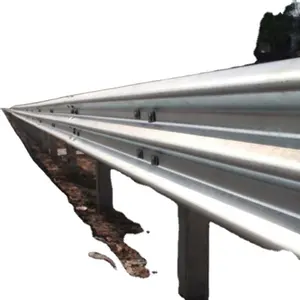


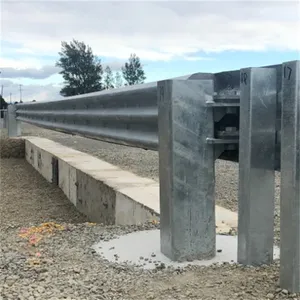

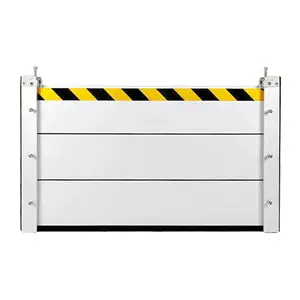

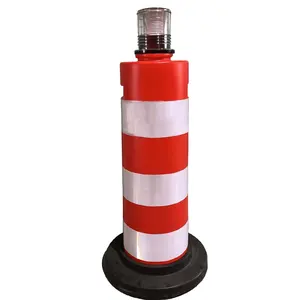
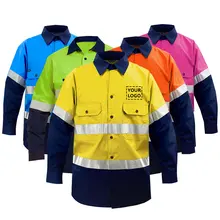
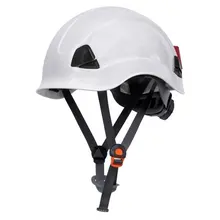


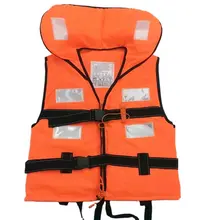
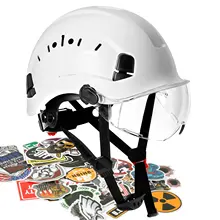

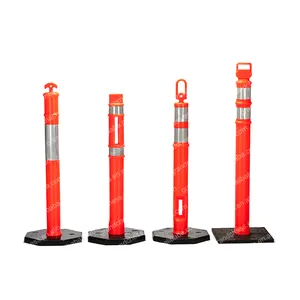















 浙公网安备 33010002000092号
浙公网安备 33010002000092号 浙B2-20120091-4
浙B2-20120091-4